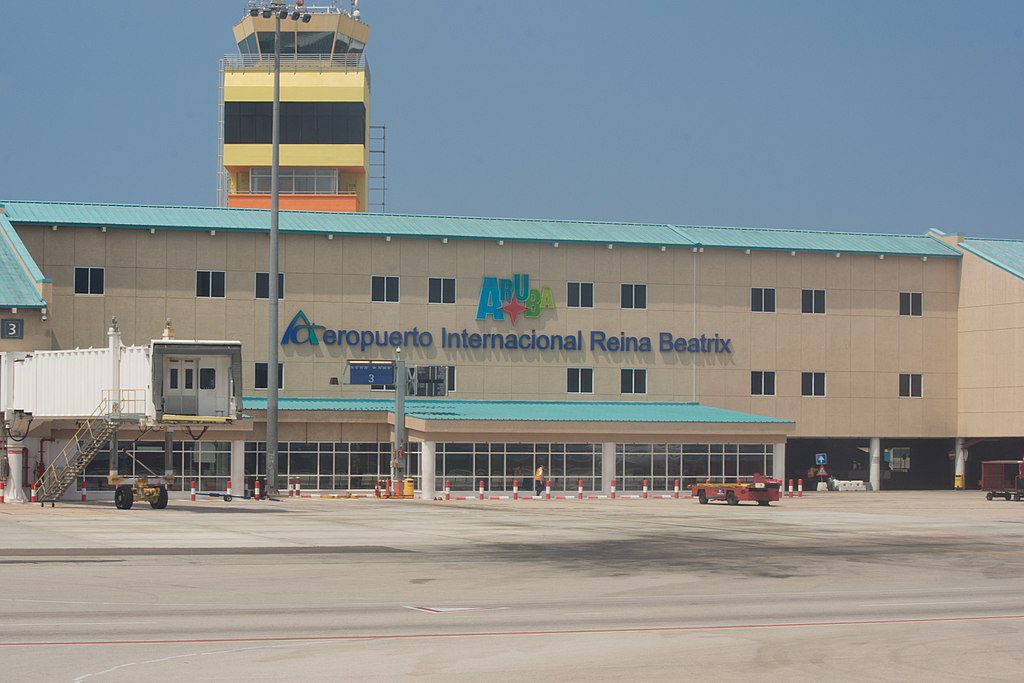Skift Take
The CommonTrust Network signed Aruba this week as its first member country, a win in the race to develop a digital health passport. But competition remains fierce as airlines await a single standard that can safely restart travel.
Aruba, the tiny Caribbean tourist destination, is the first country embrace and adopt a digital health passport platform. It may not be fruitful, however, since airlines are still waiting for global agreement behind a single standard.
Excitement has emerged around digital health passports that could begin to reopen international travel. The two leading contenders in development are CommonPass backed by the World Economic Forum and Travel Pass by International Air Transport Association (IATA). Both do essentially the same thing: generate a unique QR code with a travelers’ Covid-19 status for use when boarding a flight and arriving in another country. Backers of both solutions say the respective platforms can be tailored to adhere to any given country’s specific travel restrictions.
But while carriers ranging from British Airways to United Airlines have signed on to trials of both apps, governments have lagged on adopting either standard. At least until now.
“Aruba is pleased to take a leadership role as the first government to formally join the CommonTrust Network,” said Evelyn Wever-Croes, the prime minister of Aruba, in a statement on Thursday.
Aruba’s move will see the tourism-dependent nation sync the existing Aruba Health App that debuted in July with the CommonPass app. Travelers will be able to use either platform to verify their Covid status when entering the country by February, Arubian minister of health, tourism and sport Dangui Oduber told reporters the same day.
The addition of Aruba is a clear win for CommonPass in the horse race to become the digital health passport standard. While a small market — the island’s 1.4 million departing travelers in 2019 amounted to a fraction of the nearly 1.9 billion international flyers globally the same year — the official buy-in is a key step forward for the platform.
IATA plans the first full pilot of its Travel Pass solution in collaboration with British Airways and the UK government in January, the organization’s senior vice president of airport passenger cargo and security Nick Careen said Wednesday. If all goes according to plan, the app could launch by the end of March if not sooner.
While the pilot represents progress, the lack of an official government member remains a drawback for Travel Pass. Governments will ultimately decide how borders reopen to travelers — not airlines or their trade groups.
As if on cue, JetBlue Airways said it would recognize the CommonPass app for Aruba-bound travelers the day after the country’s announcement. The airline had previously joined the CommonTrust Network of partners that back the app.
“The biggest obstacle for testing to help boost travel is gaining government buy-in for a science-based approach to travel restrictions,” wrote Raymond James airline analyst Savanthi Syth in a report on Thursday. A science-based approach to Covid-19 travel restrictions is key to the success of any digital health passport.
As JetBlue demonstrated, airlines are likely to follow government adoption of a health passport app. They are just eager for the industry to coalesce around a single platform.
“What is clear is that there needs to be a focus on standards and interoperability so that consumers do not have to navigate a patchwork of different apps by airline or country,” Avi Mannis, senior vice president of marketing at Hawaiian Airlines, told Skift.
Both CommonPass and Travel Pass leaders say their platforms are designed to interact with other systems and, at least for the latter, use open source technology.
Hawaii adopted a science-based approach to reopening travel with its decision to allow in travelers with a recent negative test in October. However, the state has yet to adopt a digital solution to display these results prompting airlines like Hawaiian to focus on building a network of recognized Covid testing clinics at gateway airports.
Health passports cannot come soon enough for airlines. They are eager to capture the “pent up demand” among would-be flyers once standards are set for safe pandemic travel. And even with the beginning of mass Covid vaccination campaigns in the UK and U.S., the need for these passports is expected remain for some time as global inoculation is forecast to take years.
“Vaccination isn’t going to be required for travel. It’s going to be the tests,” Gloria Guevara, CEO and president of the World Travel and Tourism Council, told reporters on Thursday.
Airlines are eager for ways to reopen travel as they seek to restart large swaths of their passenger-starved businesses from the depths of the coronavirus pandemic.
According to IATA, global air traffic fell by 94 percent in April compared to 2019 when the virus shut countries around the world. Travelers have trickled back to down a little more than two-thirds in October but, at least on the international front, the recovery remains stalled.
Airlines that rely on international travel have been hit hard. For example, Hong Kong’s Cathay Pacific Airways carried just 1,200 passengers a day — the equivalent of five full Boeing 777s worth of flyers — down a remarkable 99 percent from a year ago in November.
The Daily Newsletter
Our daily coverage of the global travel industry. Written by editors and analysts from across Skift’s brands.
Have a confidential tip for Skift? Get in touch
Tags: british airways, cathay pacific, commonpass, coronavirus, coronavirus recovery, digital health passports, hawaiian airlines, iata, jetblue airways
Photo credit: Aruba is the first country to join CommonPass Trust Network, a digital health passport platform. Roman Tokman / Wikipedia
